A piece of gray pipe hangs among the potted plants on Susanne Jallow’s apartment balcony. Hidden inside the nondescript tube is a tiny computer, seven cables and a particle sensor.
In most places, the device would make for an unusual garden accessory. But it is a common sight in Stuttgart, southwest Germany, where hundreds of the gadgets hang in homes and backyards across the city.
Jallow, 55, is a lively mother of two who has lived in Stuttgart for 30 years. She uses her sensor every day to check the level of pollution – but it’s not just the numbers that tell her the air is dirty. On bad days, she can see the pollutants on the sensor itself.
“You can feel it,” she told CNN last year. “When you go outside, you notice it. You get breathing problems, your throat hurts, you start being short of breath easier.”
The air in Jallow’s neighborhood is some of the most polluted in the country, with levels of particulate matter and nitrogen dioxide (NO2) – both products of diesel vehicles – often reaching dangerous levels.

Last year, she and a neighbor lodged a criminal complaint against the city’s mayor and district president, alleging bodily harm caused by air pollution. Jallow lost the case but hasn’t stopped campaigning.
On Tuesday, Germany’s highest court will decide whether diesel cars can be partially banned in German cities, including Stuttgart and Düsseldorf. Two lower courts ruled in favor of the bans last year, but the two states in which the cities are located appealed those rulings.
Jallow is eagerly awaiting the verdict, which could have far-reaching consequences for other German cities.
It’s not the first time diesel is under debate in a courtroom. Since the German automaker Volkswagen was first exposed for cheating emissions tests in the United States in September 2015, hundreds of thousands of lawsuits have been launched against the company by angry owners of VW diesel cars and investors around the world.
VW admitted to illegally programming the engines in several of its diesel models to activate emission controls only during lab testing.
But outside the lab, these cars – marketed as “clean diesel” – were spewing out up to 40 times more nitrogen oxides (known as NOx, a group of gases that includes NO2) than the maximum allowed by US law, and up to 19 times the amount permitted in the European Union.
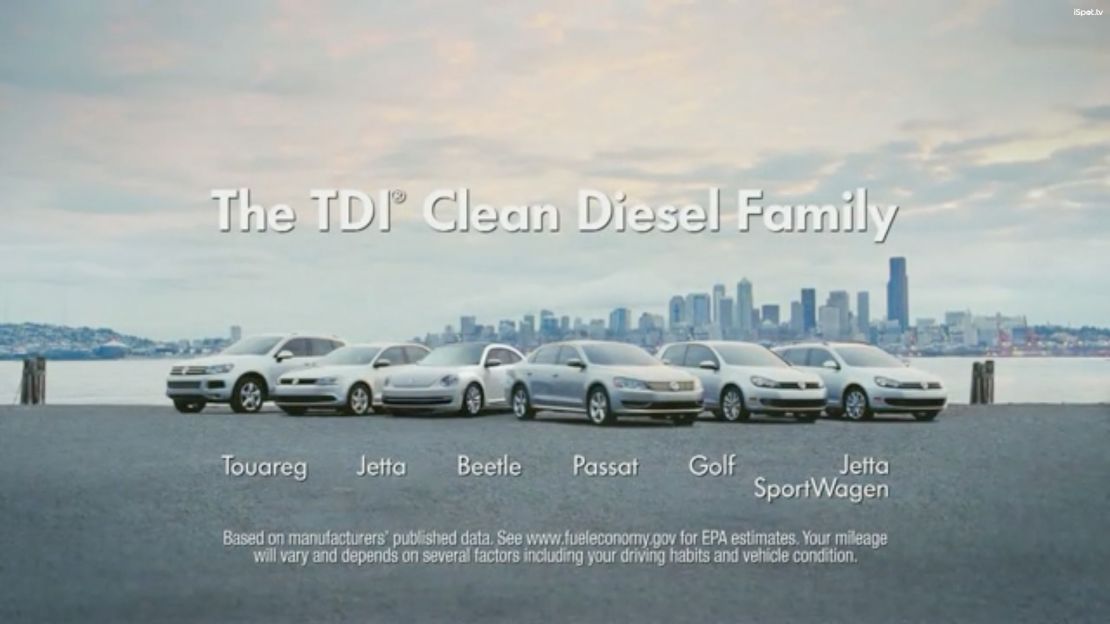
In the months that followed the announcement, the scale of the conspiracy – which allegedly began in 2006 and was the subject of multiple cover-ups – became clear.
Volkswagen said 11 million cars worldwide were fitted with software designed to cheat emissions tests. The company is facing around $30 billion in costs related to the scandal.
While two VW employees were sentenced to prison in the US in the past year, to date there have been no criminal prosecutions in Germany, the country that gave birth to the “Dieselgate” scandal.
Profits are growing, record numbers of VW cars are being sold, and last month was the company’s best ever January for vehicle sales.
“There’s that old adage, that crime shouldn’t pay,” said Michael D. Hausfeld, founder and chairman of global law firm Hausfeld, which helped secure a $15 billion settlement to compensate owners of VW vehicles in the US. “In this instance Volkswagen has basically proven that adage wrong.”
Several other car manufacturers – including Audi, Porsche (both owned by VW), Daimler and Chrysler – are now also facing allegations from authorities in the US and Germany that they cheated emissions tests. Multiple investigations are underway and hundreds of thousands of diesel cars have been recalled.
“Volkswagen deeply regrets the behavior that gave rise to the diesel issue,” spokesman Dirk Ameer told CNN in a statement. “The Volkswagen Group will leave no stone unturned to prevent violations of any laws and identify such violations as early as possible.”
“We have been fully cooperating with the US authorities for more than two years and have provided comprehensive transparency,” Daimler spokeswoman Ute Wüest von Vellberg said in a statement. “The authorities know the documents and no complaint has been filed.”
A spokesman for Fiat Chrysler Automobiles referred CNN to a statement from last May in which the company said it would defend itself “vigorously” from any claims that it “engaged in any deliberate scheme to install defeat devices to cheat US emissions tests.”
READ MORE: Why Germany has a dirty climate secret
The revelation
Daniel Carder wasn’t expecting to expose a scandal. When the engineer at West Virginia University took on a project in 2012 to investigate diesel emissions, it seemed like a run-of-the-mill job for a man who had spent his whole career in the diesel industry.
The goal was to find out why the same supposedly low-emission diesel engine cars being driven around the US were pumping out so many more pollutants on Europe’s roads.
“We set out to show that diesels … are a good option,” Carder said.
Instead, Carder’s team discovered that the low emission performance of the US vehicles was a mirage.
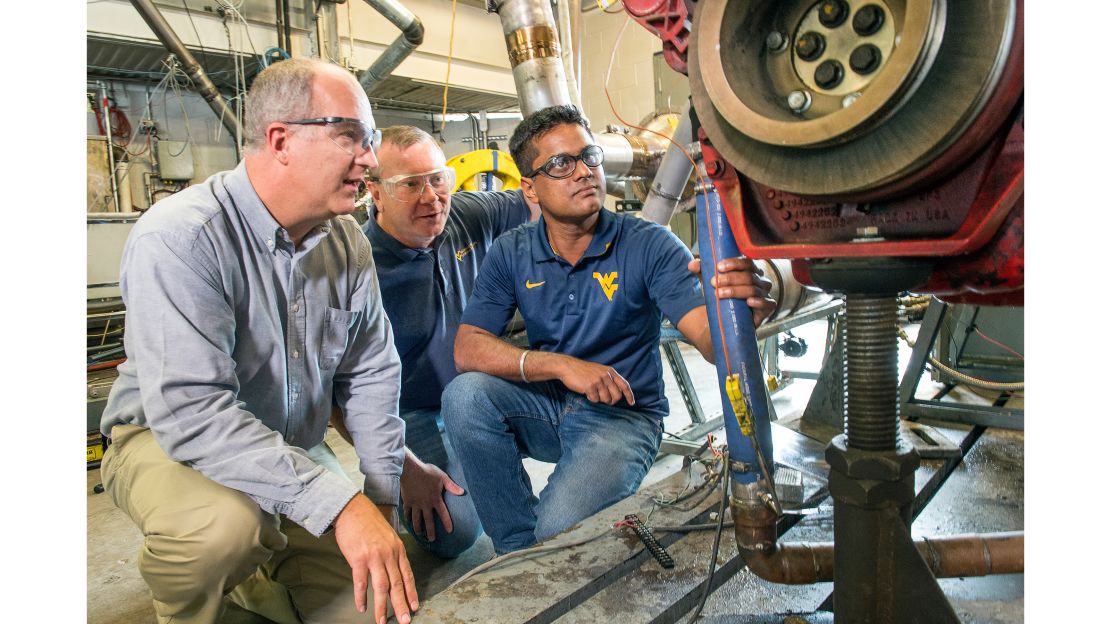
The discrepancies between emissions in the lab and on the road in two of the three vehicles they tested – both Volkswagens – were so shocking that he wondered at first if they had made a mistake.
The VW Passat and VW Jetta were emitting 20 to 40 times the amount of NOx they should be.
Companies cutting corners on emissions tests was nothing new for Carder.
“But the things that we’ve encountered in the past have not been at this level, this egregious,” he said.
After several unsuccessful attempts by the California Air Resources Board to get Volkswagen to fix the problem, the news of the fraud broke on September 18, 2015.
The scandal made headlines around the world, but hit the people of Wolfsburg, Germany – home to VW headquarters – especially hard.
Antonio Potalivo, one of more than 60,000 people who work at the VW manufacturing plant in Wolfsburg, recalled his sadness and anger at the news.
“One of my first thoughts was that we have top engineers and it was disappointing to know they used those tricks,” he told CNN last year.
But he said the company’s employees – many of whom have worked at the factory their whole lives, often following in their parents’ and grandparents’ footsteps – remained loyal.
“One of my colleagues launched a solidarity campaign: ‘In good or bad days we stick to VW’. The kind of phrases you hear when your football team is going downhill,” he said. “Volkswagen has done a lot for us.”
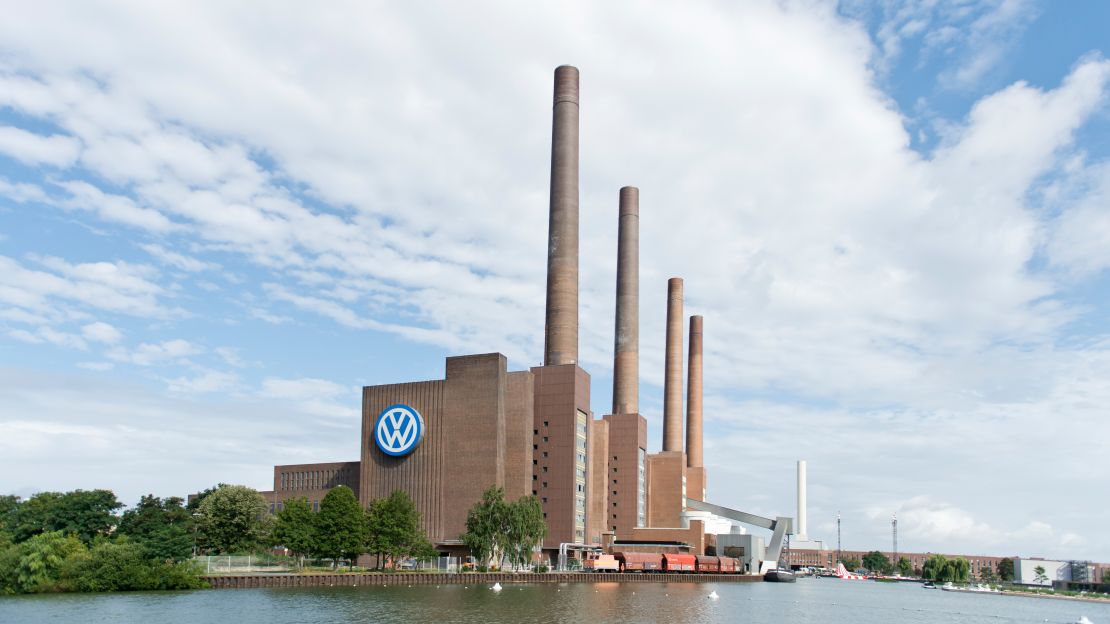
The fallout
The first criminal convictions were handed down two years later.
At a hearing in a federal court in Detroit, Michigan last March, VW pleaded guilty to three felony counts – conspiring to defraud the United States, obstructing justice, and importing merchandise by means of false statements.
In August 2017, former VW engineer James Liang was sentenced by the same US court to 40 months in jail. In December, the former head of VW’s US environment and engineering office, Oliver Schmidt, was sentenced to seven years in prison.
The company’s crimes have cost it around $30 billion in fines, compensation paid to defrauded diesel car owners, buy-back schemes and “fixes.”
But while share prices haven’t yet recovered, VW’s vehicle sales have hardly budged since the scandal broke. That’s despite falling diesel sales across the automotive market in the US and most European countries.
READ MORE: Volkswagen used to love diesel. Not anymore
And the majority of the penalties – including the two criminal convictions – have been issued by the United States, despite less than five percent of the affected cars being driven on US roads.
“At this point, clearly no justice has been done – or insufficient justice,” said the lawyer Michael Hausfeld.
His firm is trying to redress the balance. In November, they filed a $416 million complaint in a court in Germany on behalf of more than 15,000 defrauded VW customers – and they’re working towards similar cases in several other European countries.
“Volkswagen committed a most egregious wrong… just to increase its profitability,” he said. “They did it for ten years and concealed it. That should be unacceptable everywhere in the world.”
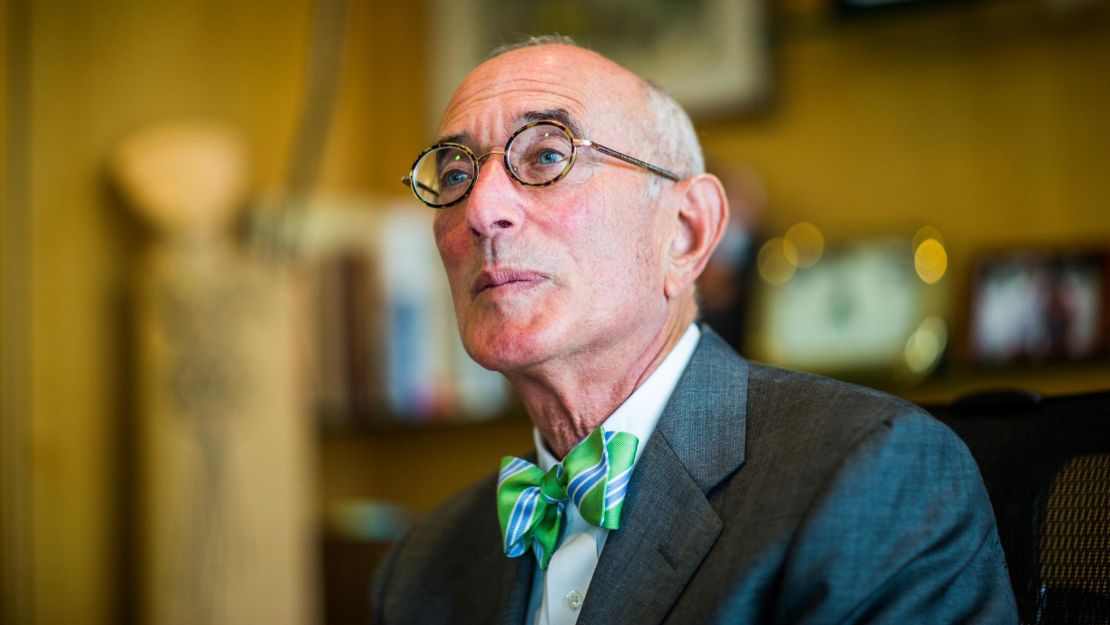
The victims
The majority of the affected vehicles were sold in Europe, a continent engaged in a largely silent battle against dangerously polluted air.
According to the World Health Organization, more than 200,000 deaths in Europe every year can be attributed to particulate matter alone – of which diesel vehicles are a significant source.
Nitrogen dioxide was responsible for around 78,000 deaths in Europe in 2014, according to the European Environment Agency. That’s the same gas that was pumped out by VW’s diesel cars in far greater quantities than legally allowed.
Nitrogen oxides including NO2 “cause inflammation on the bronchial mucous membrane,” explains Andreas Hellmann, a respiratory specialist in Berlin. “Then we see inflammatory reactions from bronchitis to asthma and the development of lung tumors in some cases.”
According to Hellmann, children living close to main roads can be particularly badly affected and face an increased risk of developing asthma, which in turn makes them even more vulnerable to the effects of nitrogen oxides.
Researchers at the Massachusetts Institute of Technology estimate that 1,200 people in Europe will die early – each losing as much as a decade of their life – solely because of the excess emissions generated by VW cars sold in Germany between 2008 and 2015.
“We’re slowly and secretly poisoning ourselves,” Florian H., a Berlin resident who asked CNN not to publish his full last name, told CNN last year.
Florian developed asthma two years ago and doesn’t leave the house when the smog in the German capital is bad.
“Every time I walk or drive along a main road … I can’t escape the clouds (of air pollution) surrounding me,” he said. “Just the sound of a diesel car makes me want to run away.”
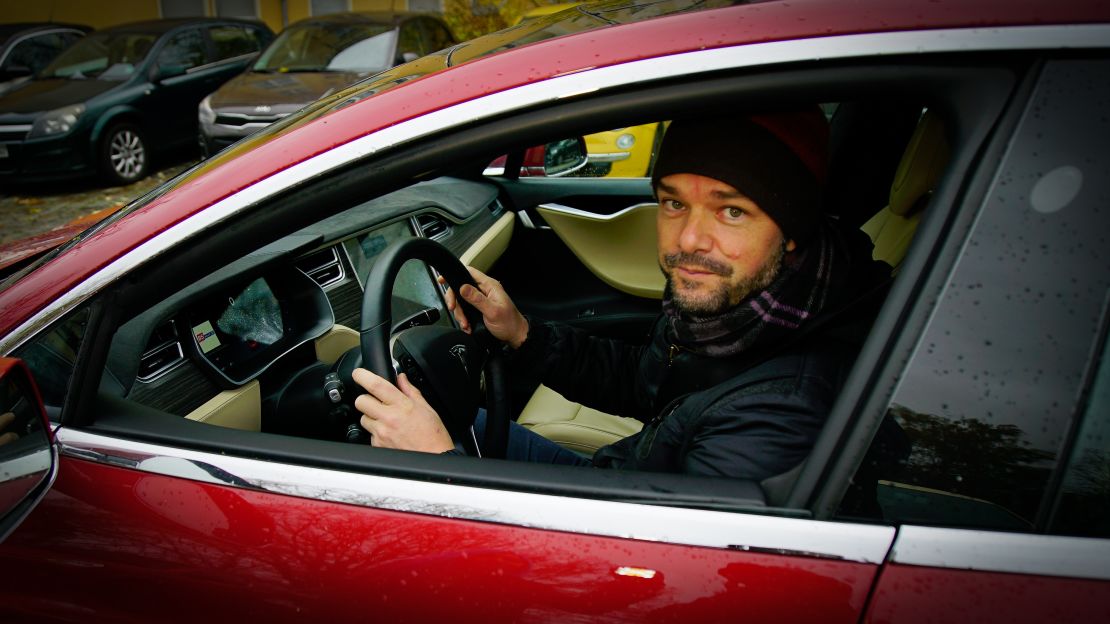
READ MORE: Monkeys were used to test diesel fumes, German carmakers say
The road ahead
A number of cities across the world are now banning the most polluting diesel cars, including several in Europe.
But no city in Germany has done so – yet – and there have been no criminal convictions in the country.
In June, the US issued international arrest warrants for five former senior VW employees, Reuters reported – but they remain safe while in Germany as the country doesn’t extradite its own citizens outside the European Union.
Oliver Krischer, a leading member of Germany’s Green Party and a diesel car owner, blamed his country’s government for the lack of punitive measures there.
By outsourcing regulation of the car industry to the car industry itself, the government “opened the floodgates for car manipulations,” he told CNN last year. “[It’s an] organized failure of the state.”
And he believes that it’s an industry-wide problem.
“This is not about a few engineers at VW doing some manipulations but about the entire car industry – in various ways and to a varying extent – manipulating emission values instead of reducing the emissions in reality, and they relied on manipulation and fraud,” Krischer said.
One of 8.5 million owners of manipulated VW cars in Europe, Krischer feels personally affected too.
“We thought we were getting a clean car, but in reality we got a dirty one.”
While thousands of duped diesel car owners are successfully suing VW, legal action on health grounds is much more difficult.
It’s virtually impossible to prove that someone has died because of exposure to high levels of NOx – or any other kind of air pollution.
That’s why, according to Susanne Jallow, her case against the mayor failed. She said that when her son developed a cough last year, it could have been due to the air, or due to the flu. “That’s the problem – it has to be proven.”
And as court cases drag on – and as bans are implemented slowly, if at all – the problem is only getting worse.
Jallow feels helpless.
“We have to breathe,” she said. “We can’t just stop breathing when the air quality is bad.”
CNN’s Atika Shubert, Claudia Otto, Melina Borcak and Henrik Pettersson contributed to this report.
